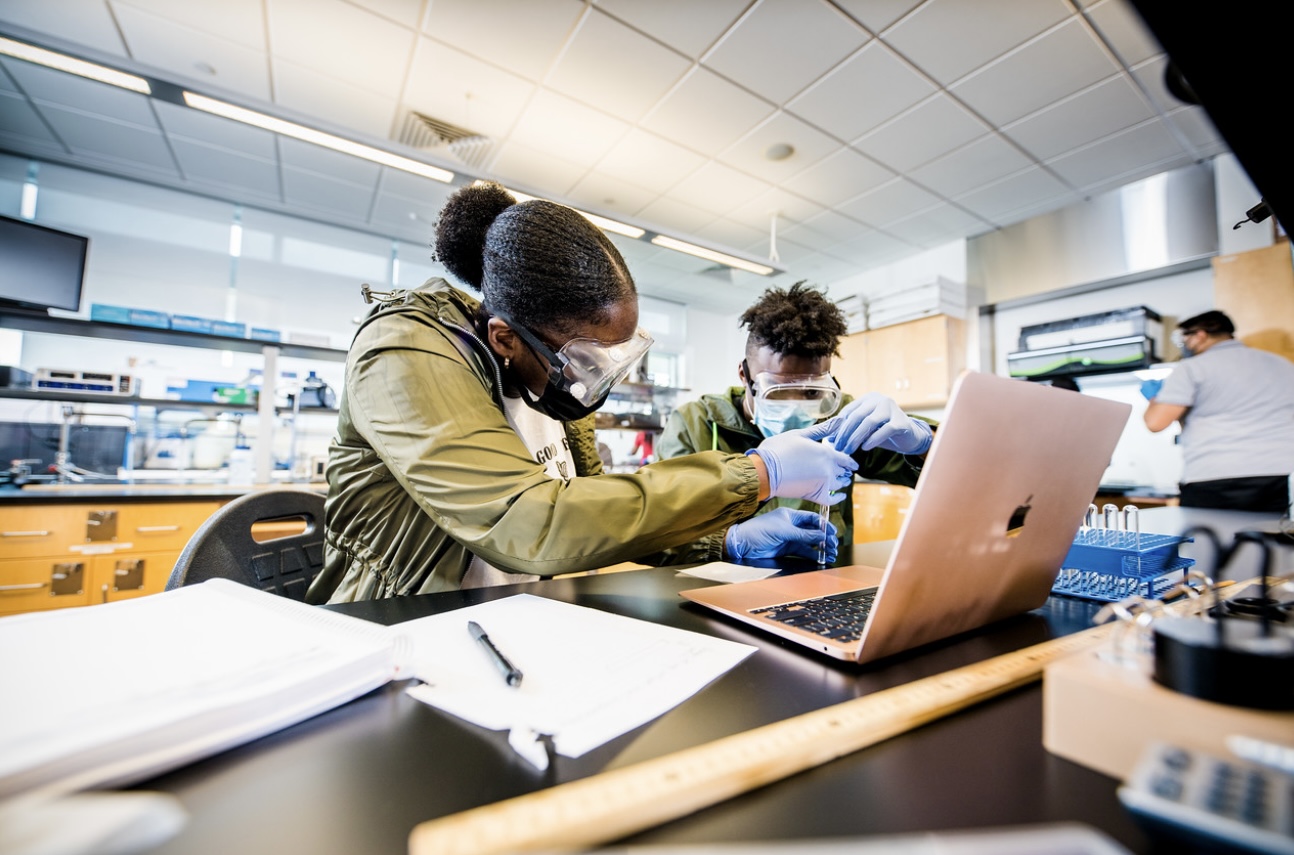Experiential learning is the process of developing knowledge and skills from direct experience - learning through action.
Experiential learning at UNT Dallas is two-fold: it serves to help students transition more gracefully from college to the work place setting by gaining marketable skills, real world experience, and industry networks; it also serves to improve the quality of learning by understanding how text book learning applies to the real world by increasing the likelihood of using the knowledge, critical thinking skills, and habits of mind acquired in their studies.
Credit bearing experiential learning - Students will take courses that are experiential learning focused or require some level of experiential learning, either field-based or through classroom participation.
Non-credit bearing experiential learning - Students can participate in experiential learning opportunities offered through campus sponsored activities, the Urban SERCH Institute, and students organizations.
Types of High Impact Experiential Learning:
| Type |
Definition |
| Internship |
A form of experiential learning that integrates knowledge and theory learned in the classroom with practical application and skills development in a professional workplace setting (NACE) |
| Capstone Course - Employer Connected |
An academic experience required in a student’s final year. An employer-connected capstone course may include an internship, field placement, or a semester-long, class project based on employer/client engagement. The course is an opportunity to highlight a student’s academic career and provide meaningful experience and skill building opportunities to contribute to their future endeavors. |
| Capstone Course Project |
An academic experience required in a student’s final year. A capstone project may include a research paper, portfolio composition, case study, or creative work. The course is an opportunity to highlight a student’s academic career and provide meaningful experience and skill building opportunities to contribute to their future endeavors. (National University) |
| Research |
A mentored investigation or creative inquiry conducted by undergraduates that seeks to make a scholarly or artistic contribution to knowledge. (The Council on Undergraduate Research) |
| Service Learning |
Students benefit from a teaching and learning strategy that integrates meaningful community service with instruction and reflection. Students gain direct experience with issues they are studying in the curriculum and with ongoing efforts to analyze and solve problems in the community. A key element in these programs is the opportunity students have to both apply what they are learning in real-world settings and reflect in a classroom setting on their service experiences. |
| Community Service |
General volunteer experiences to give back to local community and beyond. |
